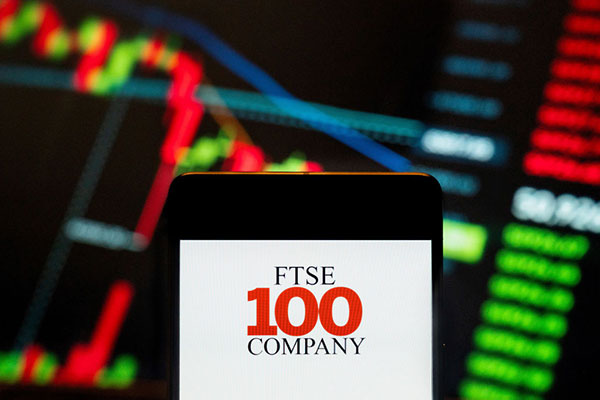Here’s why this FTSE 100 share just hit a record
It’s not usually a blue-chip stock to grab the headlines, but with this firm's record of acquisitions and margin progress there’s plenty to like in today’s half-year results.
27th August 2024 13:55
by Graeme Evans from interactive investor

Bunzl (LSE:BNZL) shares surged to a fresh record today as the cash-generative FTSE 100 stalwart revealed the benefit to shareholders of its recent margin and deal-making progress.
Interim results included a further upgrade to full-year guidance, a 10.4% increase in dividend and a pledge to buy back £250 million of company shares in the period up until March.
- Invest with ii: What is a Managed ISA? | Open a Managed ISA | Transfer an ISA
A new capital allocation policy will also see Bunzl commit £700 million a year towards further value-accretive acquisitions and, if required, return of capital up until 2027.
Today’s presentation by the distribution and services firm helped shares jump more than 10% at the opening bell before they settled 7% or 224p higher at 3,438p by lunchtime.
Shore Capital’s fair value estimate of Bunzl shares continues to be 3,700p, based on strong levels of cash generation and its view on the quality of the group’s operations and long-term record.
The group, which listed on the London Stock Exchange in 1957, dates back to 1854 when Moritz Bunzl opened a small haberdashery business in Bratislava.
It is now a major international player, supporting customers worldwide with essential not-for-sale products and services across a range of sectors. The biggest are foodservice and grocery, while more than half of revenues are generated in North America.
- ii view: Bunzl upgrades full-year profit outlook
- Sign up to our free newsletter for share, fund and trust ideas, and the latest news and analysis
- Insider: bosses back up targets with own purchases
Today’s announcements are underpinned by a strong balance sheet and the significant recent improvement in operating margin, which is up to 8% from 7.4% a year earlier.
The margin advance reflects operational efficiencies as well as initiatives such as the increased penetration of Bunzl’s own-brand products to 27%. Margins have also benefited from the quality of acquisitions made in recent years.
Seven deals, including one today involving the Western Australia-based industrial cleaning equipment firm PowerVac, have taken acquisition spend so far this year to over £650 million.
This exceeds the previous high of £616 million achieved in 2017, with this year’s latest additions taking place in seven countries and five sector verticals.
As a highly cash-generative business, Bunzl is expected to have significant capacity to continue its strategy of value-accretive acquisitions.
It said the pipeline remains active given the very large and fragmented global markets that it operates in. Bunzl added today: “The continued consolidation of fragmented end markets is a key driver of future growth for the group.”
If at the end of each year the total committed spend on acquisitions is below £700 million, the group will return the remainder to shareholders through a capital return in the following year.
- Stockwatch: serious upside potential at this small-cap
- Shares for the future: a speculative stock expecting steady growth
Having generated £2.9 billion of free cash flow between 2019 and 2023, the group is in a position to launch a £250 million share buyback and to pledge a further buyback at full-year results of £200 million.
Dividend cover, which is the ratio of adjusted earnings per share to the total dividend per share, is also set to reduce to around 2.65 times in 2024. Further normalisation in 2025 to between 2.5 and 2.6 times is then likely in order to enhance returns for shareholders.
Today’s interim dividend of 20.1p a share is due to be paid on 3 January, costing £67 million.
Revenues in the half-year results fell 0.4% at constant exchange rates to £5.7 billion, although Bunzl said improved trends in the second quarter had continued into July and August. Earnings per share of 90.8p rose by 2.8% on a reported basis.
These articles are provided for information purposes only. Occasionally, an opinion about whether to buy or sell a specific investment may be provided by third parties. The content is not intended to be a personal recommendation to buy or sell any financial instrument or product, or to adopt any investment strategy as it is not provided based on an assessment of your investing knowledge and experience, your financial situation or your investment objectives. The value of your investments, and the income derived from them, may go down as well as up. You may not get back all the money that you invest. The investments referred to in this article may not be suitable for all investors, and if in doubt, an investor should seek advice from a qualified investment adviser.
Full performance can be found on the company or index summary page on the interactive investor website. Simply click on the company's or index name highlighted in the article.